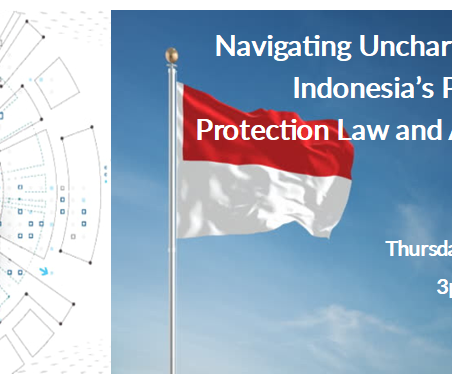In a judgment (2023 Su 05 Xie Wai Ren No. 8) dated March 14, 2025, the Suzhou Intermediate People’s Court of Jiangsu Province in China (Suzhou Court) recognized and enforced civil judgment HC/S194/2022 under file number HC/JUD47/2023 by the Supreme Court of Singapore (Singapore Judgment). The judgment by the Suzhou Court was announced in September 2025 by the Supreme People’s Court of China (SPC) as among the fifth batch of “Belt and Road Initiative” model cases.
Background
The applicant, Company Golden Barley International Pte Ltd (legal representative Wu), requested the Suzhou Court to recognize and enforce the Singapore Judgment, including the obligations imposed on the respondent Xiao to make payment.
The applicant claimed, among others, that Xiao, as director of Company Ba, colluded with other defendants of the case and procured Company Golden Barley into signing contracts with Company Ba and another company and making prepayment, without delivering to Company Golden Barley the goods agreed under those contracts. The Singapore Judgement, among others, orders Xiao to pay over $6.6 million plus interest to Company Golden Barley. The applicant based its application on China’s Civil Procedure Law, the Interpretations of the Supreme People’s Court on the Application of Law to Interest Accrued on Debt during the Period of Delayed Performance during Enforcement and the Memorandum of Guidance between the Supreme People’s Court of the People’s Republic of China and the Supreme Court of Singapore on Recognition and Enforcement of Money Judgments in Commercial Cases (MOG).
The respondent Xiao, on her part, made several counterclaims. For one, she contended that service of documents was defective as service was forwarded by the International Cooperation Bureau of the SPC rather than the Ministry of Justice which is the authority designated in China’s decision to join the HCCH Service Convention and that the documents she received were copies in the English language. Xiao also pointed out that the MOG is non-binding and that the treaty between China and Singapore on judicial assistance in civil and commercial matters does not cover judgments recognition and enforcement. Further, the respondent argued that the Singapore Judgment was not final and binding because it was pending appeal among some other defendants.
Decision
The Suzhou Court noted that since the MOG was signed in August 2018, courts in China and Singapore have recognized and enforced each other’s judgments. Reciprocity therefore exists between the two jurisdictions which is required under Chinese law for recognizing and enforcing foreign judgments in the absence of any international treaty on judgments recognition and enforcement signed by or acceded to by the jurisdictions concerned.
The Suzhou Court also found that service of the Singapore legal instruments on Xiao is not defective. The Chinese embassy in Singapore has entrusted the International Cooperation Bureau of the SPC to assist with service for case HC/S194/2022 in July 2022. One month later, the Zhangjiagang People’s Court in Jiangsu Province (Zhangjiagang Court) served those documents on Xiao who acknowledged receipt. Xiao then declined to take the originals of those documents when again contacted by the Zhangjiagang Court after the original copies were subsequently forwarded by the Chinese embassy in Singapore.
Further, the Suzhou Court found that the Singapore Judgment is final and binding. Specifically, the Suzhou Court requested the SPC to submit a Request for Ascertaining Relevant Laws of Singapore to the Supreme Court of Singapore. In a reply issued in December 2024, the Supreme Court of Singapore explained the scope of application of Singapore’s Rules of Court and the provisions therein on default judgments, which helped the Suzhou Court reach its conclusion.
The Suzhou Court accordingly recognized and enforced the Singapore Judgment.
Commentary
With this decision, the Suzhou Court continues the favorable momentum of the courts of China and Singapore recognizing each other’s commercial judgments and affirms the importance and practical application of the MOG despite its non-binding nature.
Further, according to the SPC, this is the first time that a Chinese court has activated the procedure for seeking assistance from a Singapore court to provide clarifications (termed as “ascertainment”) on relevant Singapore law. In fact, Article 19 of the MOG says that Singapore courts may seek assistance from the SPC to obtain certification that the Chinese judgment for which enforcement is sought is final and conclusive. This “right” to seek assistance is not provided in the MOG for Chinese courts. According to the SPC, the Suzhou Court sought assistance from the Supreme Court of Singapore based on a separate instrument the Memorandum of Understanding on Cooperation between the Supreme People’s Court of the People’s Republic of China and the Supreme Court of the Republic of Singapore on Information on Foreign Law.
Close attention should be paid to the continued application of the MOG for the recognition and enforcement by courts in China and Singapore of each other’s commercial judgments, and to whether the procedures for seeking information on foreign law will be invoked more frequently by courts of both jurisdictions.
The SPC announcement can be read here. We thank Dr Yu Meng for sharing with us a copy of the Suzhou Court judgment.
More about ABLI’s work on the recognition and enforcement of foreign judgments in Asia can be found here and here.
Whilst every effort has been made to ensure that the information contained in this update is correct, the Asian Business Law Institute disclaims all liability and responsibility for any error or omission in this update, and in respect of anything, or the consequences of anything, done or omitted to be done by any person in reliance, whether wholly or partially, upon the whole or any part of the contents of this update.




![[Interview] Landmark Indonesian Recognition [Interview] Landmark Indonesian Recognition](https://abli.asia/wp-content/uploads/elementor/thumbs/Interview-Landmark-Indonesian-Recognition-r77cnxow0ude3j2mxz2wbivxrofvqnqg7fg3rw1zx0.jpg)

